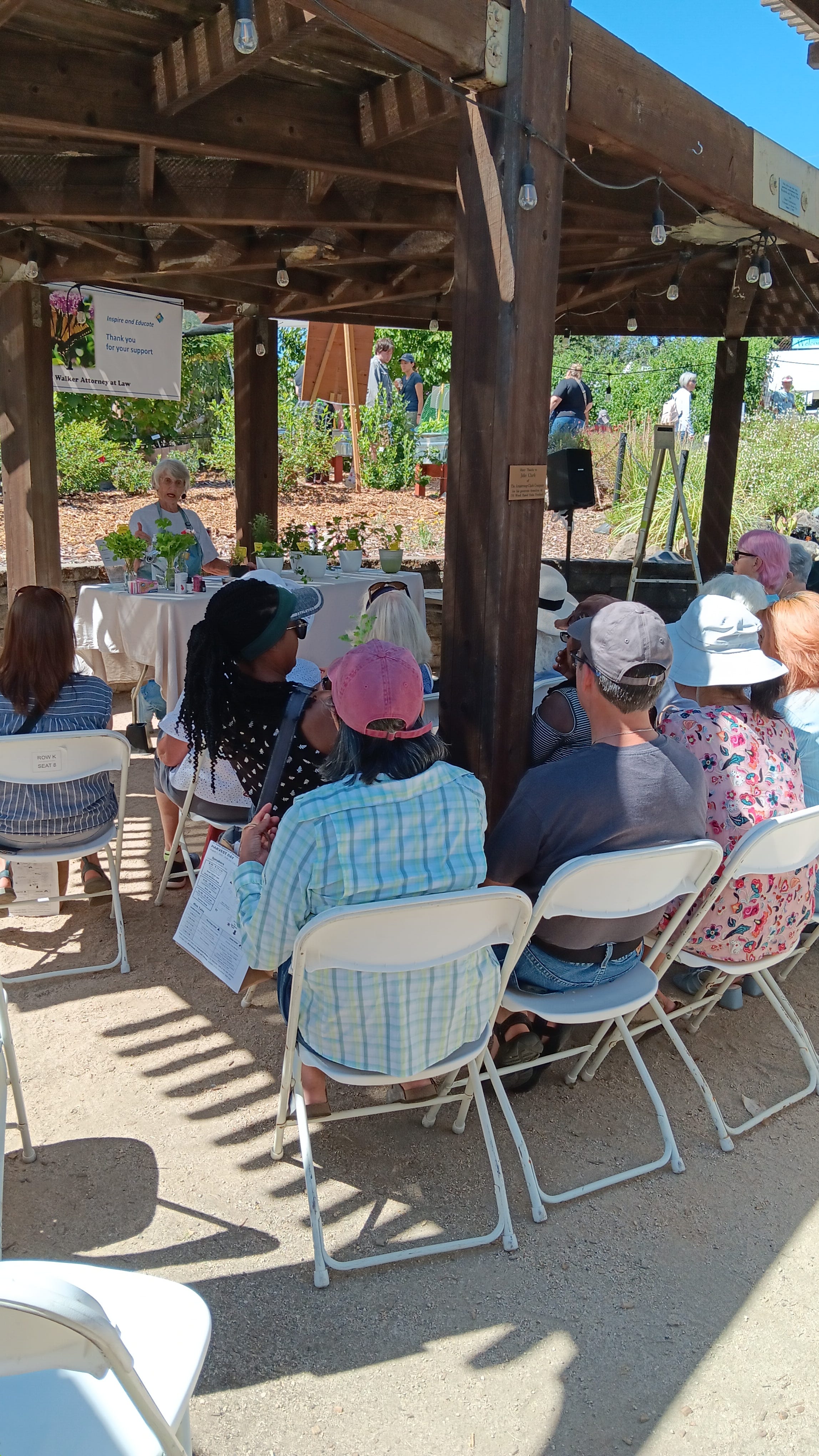Podcast Episode Details
Back to Podcast Episodes
Garden Tips from the Experts
One of the best places to get your garden questions answered (or pick up the 2026 Sac Co Master Gardener Gardening Guide and Calendar) is at the annual gathering of Master Gardeners, gardening professionals, and horticultural consultants at Harvest Day, held the first Saturday of August each year at the Fair Oaks Horticulture Center in Sacramento County. And last Saturday was no exception. A question I posed to several dozen of the pros there was this: “What is the one garden tip you would like people to know?” Here’s a sampling of their answers. You can listen to all the tips in the podcast, above, which is a copy of the entire Episode 404 of the Garden Basics podcast.
• Dave Roberts, of the Sacramento Cactus and Succulent Society: “You got to have excellent drainage for cactus and succulents. They thrive on soils that will drain right through, with low amounts of organic material. And if you have that formula, you're going to be successful. Cactus and succulents are not heavy feeders. I feed my potted cactus and succulents two to three times at most during the growing season. Very lightly, not a heavy dose. It’s different from the way we treat our vegetables and flowering plants. Those rules do not apply to succulents. So, if you have heavy clay soil, you may want to consider growing cactus and succulents in containers.”
• Charlotte Owendyk, Master Rosarian – Sierra Foothills Rose Society: “One of the things I like to suggest to anyone who has potted plants is to use a fish emulsion fertilizer periodically. Perhaps once a week or so. Fertilizing with fish emulsion really makes your potted roses or any potted plant do well.”
• Chris Aycock, El Dorado Nursery and Garden, Shingle Springs: “If you really want to keep the deer out, you do need to build a fence. You can spray all the repellents all you want, and it will deter them, temporarily. You need to switch off repellents so that they don't get used to one thing. But fencing is your best friend for keeping the deer out. Enjoy the view of those deer, from the other side of the fence. Trap crops on the outer perimeter of your yard – which are plants the deer will enjoy, will not keep them from coming in any further. Anytime you put a food source out there for them, you're just inviting them in saying, ‘hey, look this dining room's open for grazing!’ They can sustain themselves. You don't need to feed them.”
• Anita Clevenger, Master Gardener, perennial plant expert: “Cutting plants back in the summer will help them bloom again. We have plants here in the perennial garden like the catmint and the Santa Barbara daisy. And they just love a refresher light pruning earlier in the summer after their first bloom. You cut them back hard generally in the winter, along with many other perennials. But for these plants, after they've done their spring bloom, if you cut them back, they will get a whole new fresh breath and a fresh flush of flowers and leaves.”
• Garry Chin, Sierra Foothills Rose Society: “If you are interested in growing roses, one of my recommendations is to join a local rose society wherever you live. And then join the national organizations, such as the American Rose Society. Do that and you'll find out about the latest things that are going on with roses at the national level.”
• Grace Amico, Miridae Mobile Nursery, which specializes in California Native plants: “With native plants, you must be careful with watering. In their first two or three years, you will need to add more water than you might think. And then after that first few years, you can kind of taper off and let them become more drought tolerant. And with California native plants, you must be patient with them. It could take three years before you see a large spurt of growth.”
Published on 1 month, 2 weeks ago